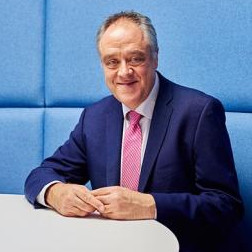
In all the developments and challenges presented at the UN Climate Summit last week, the most important debates were not about how we can improve, but how we can systemize the change.
It is redundant to think where we sit in the league table, when what needs to change are the rules of the game for everyone.
It’s why the use of the ratchet mechanism from the Paris agreement and the imperative to address the context approach in all our sustainability actions are both right, but must see the actions under the Climate Change Treaty themselves put in the context of wider societal, economic and cultural norms.
Most obvious of all has been the progress made towards the Task Force for Climate-related Financial Disclosure (TCFD) recommendations, to link climate risk to the world’s financial systems and decision-making.
But although the number of companies explicitly committing to the recommendations is now approaching 1,000, the Task Force’s Status Report earlier this year made clear the priority is for acceleration.
For me, this should not simply be in addressing the lag in how far each of the disclosures is being effectively made amongst those companies already reporting, but in the forces that can trigger interest from the vast majority of companies who are not.
That’s the significance in the progress report published in New York last week, on how the TCFD recommendations can be mainstreamed in the continuing process towards alignment of the major financial and non-financial corporate reporting frameworks and standard-setters.
Coming together to form the Corporate Reporting Dialogue (CRD), these include CDP, the Climate Disclosure Standards Board, the Global Reporting Initiative, the International Integrated Reporting Council and the Sustainability Accounting Standards Board.
If each of the sustainability frameworks represented in the CRD aligns to the recommendations in full, overnight it would increase TCFD reporting worldwide by ten-fold.
This is being driven forward in the CRD Better Alignment Project, which I was proud to help establish in my years at the International Integrated Reporting Council, and where I am gratified to see its concrete results being brought in to the public domain.
Last week’s first year progress report describes how the project started with technical mapping of the principles, disclosures and metrics in the TCFD recommendations, against the requirements of what are indeed the major comprehensive frameworks being used by companies to report today.
An important finding is that each one of the principles recommended are themselves comprehensively covered by the existing frameworks, making it much easier for companies to advance TCFD reporting, without having to fundamentally change the way they organize their reporting practices.
The project has involved continuous stakeholder involvement, to test market-readiness for its conclusions. Most encouraging of all, consultation results published last June show clear demand from business itself for progress towards the intended aim of alignment. Current frameworks and standards were viewed by many as a “temporary fix” to problems that require a more comprehensive solution, the project reported.
For our partners who believe in the ultimate goal of integrated reporting, it provides reason for optimism that we can avoid climate risk becoming only the latest of a long series of disclosure demands and initiatives in well-meaning but ultimately limited, fragmented and disconnected approaches.
The mapping exercise on metrics undertaken by technical specialists from each of the frameworks in the first year of the project, also yielded high levels of cooperation and demonstrated already strong alignment.
It did reveal that for 15 of the TCFD’s 50 illustrative example metrics, limited differences persist amongst the frameworks involved. This particularly concerns sector-specific indicators for financial services and real estate.
There has always been a tension in developing business reporting between achieving comparability across different types of companies, and developing sector-specific information, more relevant and material to the business.
But for the wider business community, as well as for the project, the bigger question remains whether the progress towards alignment being made is fast enough to constitute meaningful progress towards the system change required?
Last week’s report commits the Project to a second year which would see the drawing up of a detailed taxonomy; the creation of an interactive, online tool aimed at guiding users through how the different frameworks interact; and to the setting up of a collaborative technical forum between the participants.
However, it draws back from committing to alignment work beyond climate issues and comments that “the Better Alignment Project may not be able to resolve this issue in its present form.”
At the IIRC Council in Frankfurt in April, we initiated a ‘live’ debate as to whether ‘convergence’ amongst existing reporting frameworks and standard-setters could proceed quickly enough or whether new institutional approaches are required, given the scale and the speed of action required?
It is equally gratifying to me that Central Banks, Stock Exchanges and Securities Commissions each have current initiatives to pursue sustainability, using a combination of market and regulatory mechanisms.
Work to update the Management Commentary Practice Statement in the International Accounting Standards Board (IASB), also has the potential to be an important step towards integration.
Perhaps most ambitious of all is the taxonomy on sustainability being developed by the European Commission, which some have suggested may become a de facto global standard for sustainable business reporting.
Within the Corporate Reporting Dialogue, my old friend and colleague, International Accounting Standards Board Chair Hans Hoogervorst, has suggested that convergence will not come quickly enough, and it is indeed time for consolidation.
I hope and believe that the partners in the Corporate Reporting Dialogue may be able to genuinely mainstream climate reporting through an evolutionary approach.
But after a week when the impact on the world’s glaciers was oft-quoted, they have to convince business, regulators and stakeholders, that the progress is not itself so glacial, as to fail to serve its over-riding purpose.

Richard Howitt is a consulting executive on corporate responsibility and sustainability, and former Chief Executive of the International Integrated Reporting Council (IIRC). The IIRC’s latest report can be seen here.














